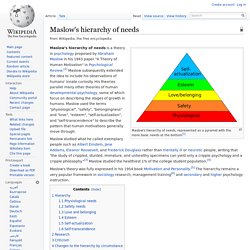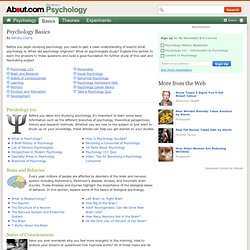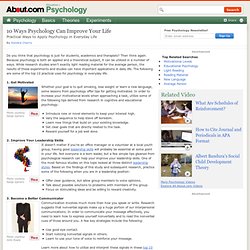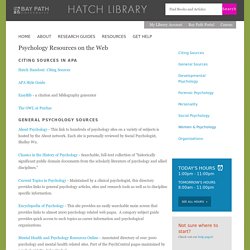Psychology
Primates expect others to act rationally
Justin Wood Rhesus macaques were one of the three types of primates that responded to an experimenter’s actions. When trying to understand someone’s intentions, nonhuman primates expect others to act rationally by performing the most appropriate action allowed by the environment, according to a new study by researchers at Harvard University. The findings appear in the Sept. 7 issue of the journal Science. The work was led by Justin Wood, a graduate student in the Department of Psychology in the Faculty of Arts and Sciences (FAS), with David Glynn, a research assistant, and Marc Hauser, professor of psychology at Harvard, along with Brenda Phillips of Boston University. “A dominant view has been that nonhuman primates attend only to what actions ‘look like’ when trying to understand what others are thinking,” says Wood. The scientists studied the behavioral response of more than 120 primates, including cotton-top tamarins, rhesus macaques, and chimpanzees.

I am pleased to introduce this guest article by a new friend John, the creator of HiLife2B, where he hopes to inspire people and to help them achieve their dreams. Follow him on Twitter: @janyasor 1. Believe that even the smallest compliment can save someone’s life 2. 3. 4. 5. 6. 7. 8. 9. 10. 11. 12. 13. 14. 15. 16. 17. 18. 19. 20. 21. 22. 23. 24. 25. 26. 27. 28. 29. 30. 31. 32. 33. 34. 35. 36. 37. 38. 39. 40. 41. 42. 43. 44. 45. 46. 47. 48. 49. 50. 51. 52. 53. 54. 55. 56. 57. 58. 59. 60. 61. 62. 63. 64. 65. 66. 67. 68. 69. 70.
70 Reminders to Help You Break Any Barrier

Maslow's hierarchy of needs
 Maslow's hierarchy of needs, represented as a pyramid with the more basic needs at the bottom[1] Maslow's hierarchy of needs is a theory in psychology proposed by Abraham Maslow in his 1943 paper "A Theory of Human Motivation" in Psychological Review.[2] Maslow subsequently extended the idea to include his observations of humans' innate curiosity. His theories parallel many other theories of human developmental psychology, some of which focus on describing the stages of growth in humans. Maslow used the terms "physiological", "safety", "belongingness" and "love", "esteem", "self-actualization", and "self-transcendence" to describe the pattern that human motivations generally move through. Maslow's theory was fully expressed in his 1954 book Motivation and Personality.[5] The hierarchy remains a very popular framework in sociology research, management training[6] and secondary and higher psychology instruction. Hierarchy Physiological needs Safety needs Safety and Security needs include:
Maslow's hierarchy of needs, represented as a pyramid with the more basic needs at the bottom[1] Maslow's hierarchy of needs is a theory in psychology proposed by Abraham Maslow in his 1943 paper "A Theory of Human Motivation" in Psychological Review.[2] Maslow subsequently extended the idea to include his observations of humans' innate curiosity. His theories parallel many other theories of human developmental psychology, some of which focus on describing the stages of growth in humans. Maslow used the terms "physiological", "safety", "belongingness" and "love", "esteem", "self-actualization", and "self-transcendence" to describe the pattern that human motivations generally move through. Maslow's theory was fully expressed in his 1954 book Motivation and Personality.[5] The hierarchy remains a very popular framework in sociology research, management training[6] and secondary and higher psychology instruction. Hierarchy Physiological needs Safety needs Safety and Security needs include:
Carl Jung Resources for Home Study and Practice
What is Psychology? The Knowledge of Psychology
What is Psychology? The Knowledge of Psychology
What is Psychology? The Knowledge of Psychology
Before you begin studying psychology, you need to gain a clear understanding of exactly what psychology is. When did psychology originate? What do psychologists study? Explore this section to learn the answers to these questions and build a good foundation for further study of this vast and fascinating subject. Psychology 101 Before you delve into studying psychology, it's important to learn some basic information such as the different branches of psychology, theoretical perspectives, history and research methods. Brain and Behavior Every year, millions of people are affected by disorders of the brain and nervous system including Alzheimer's, Parkinson's disease, strokes, and traumatic brain injuries. States of Consciousness Have you ever wondered why you feel more energetic in the morning, tried to analyze your dreams or questioned how hypnosis works? Learning From the day we our born, we begin a process of learning that lasts throughout life. Memory Emotion and Motivation Development
Psychology Basics - Psychology 101


Applying Psychology in Everyday Life
Do you think that psychology is just for students, academics and therapists? Then think again. Because psychology is both an applied and a theoretical subject, it can be utilized in a number of ways. While research studies aren't exactly light reading material for the average person, the results of these experiments and studies can have important applications in daily life. 1. Photo courtesy Sanja Gjenero Whether your goal is to quit smoking, lose weight or learn a new language, some lessons from psychology offer tips for getting motivated. 2. It doesn’t matter if you’re an office manager or a volunteer at a local youth group, having good leadership skills will probably be essential at some point in your life. 3. Photo courtesy John Evans Communication involves much more than how you speak or write. 4. Much like nonverbal communication, your ability to understand your emotions and the emotions of those around you plays an important role in your relationships and professional life. 5. 6.
 The glossary contains an A to Z listing of psychological terms with definitions and examples. Learn more about psychology one word and a time. Find both brief and extended definitions of a wide variety of psychological topics. Terms included in the psychology dictionary cover every subject and sub-field of psychology, from research methods to child development. New terms are added regularly. Use the index below to navigate the psychology dictionary. Psychology IntroductionPsychology is an exceptionally broad topic, with numerous branches that explore very specific areas of the mind, brain and behavior. Psychology Research Definitions You Should KnowPsychology research methods can be relatively simple or very complex, but there are a number of terms and concepts that all psychology students should understand.
The glossary contains an A to Z listing of psychological terms with definitions and examples. Learn more about psychology one word and a time. Find both brief and extended definitions of a wide variety of psychological topics. Terms included in the psychology dictionary cover every subject and sub-field of psychology, from research methods to child development. New terms are added regularly. Use the index below to navigate the psychology dictionary. Psychology IntroductionPsychology is an exceptionally broad topic, with numerous branches that explore very specific areas of the mind, brain and behavior. Psychology Research Definitions You Should KnowPsychology research methods can be relatively simple or very complex, but there are a number of terms and concepts that all psychology students should understand.
Psychology Dictionary - A Dictionary of Psychology Terms
Items where Subject is "Psychology > Cognitive Psychology" - Cogprints
Number of items at this level: 858. Tan, Prof. Dr. Uner (2014) Co-Variations among Cognition, Cerebellar Disorders and Cortical Areas With Regional Glucose-Metabolic Activities in a Homogeneous Sample with Uner Tan Syndrome: Holistic Functioning of the Human Brain. Liu, PHD Peilei and Wang, Professor Ting (2014) A Quantitative Neural Coding Model of Sensory Memory. Linhares, Dr Alexandre (2013) The emergence of choice: Decision-making and strategic thinking through analogies. Tarnow, Dr. Vigo , Dr. Tarnow, Dr. Vigo, Professor Ronaldo (2013) Complexity over Uncertainty in Generalized Representational Information Theory (GRIT): A Structure-Sensitive General Theory of Information. Jelec, Anna (2013) Are abstract concepts like dinosaur feathers? Amelung, Dorothee and Funke, Joachim (2013) Dealing with the uncertainties of climate engineering: Warnings from a psychological complex problem solving perspective. Vigo , Dr. Tarnow, Dr. Tarnow, Dr. Schierwagen, Prof. Mutaf, Asst. Funke, Dr.


The Developmental Psychology of Psychopathology from Project Gutenberg
Project Gutenberg Presents Project Gutenberg Release #8215Select author names above for additional information and titles Download the ebook in a format below. Key to sites: Ibiblio : Gutenberg.org (on Ibiblio: North Carolina, USA) Readingrooms : Project Gutenberg Reading Rooms (Washington State, USA) UK Mirror : Mirrorservice.org (UK) Minho : Universidade do Minho (Portugal) Pacific : Pacific Internet (Australia) This catalog page is provided by The Online Books Page, and the literature by Project Gutenberg.
Citing sources in APA Hatch Handout: Citing Sources APA Style Guide EasyBib - a citation and bibliography generator The OWL at Purdue General Psychology Sources About Psychology - This link to hundreds of psychology sites on a variety of subjects is hosted by the About network. Classics in the History of Psychology - Searchable, full-text collection of "historically significant public domain documents from the scholarly literature of psychology and allied disciplines." Current Topics in Psychology - Maintained by a clinical psychologist, this directory provides links to general psychology articles, sites and research tools as well as to discipline specific information. Encyclopedia of Psychology - This site provides an easily searchable main screen that provides links to almost 2000 psychology related web pages. Mental Health and Psychology Resources Online - Annotated directory of over 3000 psychology and mental health related sites. Developmental Psychology Forensic Psychology Dr. Personality

Psychology Resources on the Web | Hatch Library
Related:




 Maslow's hierarchy of needs, represented as a pyramid with the more basic needs at the bottom[1] Maslow's hierarchy of needs is a theory in psychology proposed by Abraham Maslow in his 1943 paper "A Theory of Human Motivation" in Psychological Review.[2] Maslow subsequently extended the idea to include his observations of humans' innate curiosity. His theories parallel many other theories of human developmental psychology, some of which focus on describing the stages of growth in humans. Maslow used the terms "physiological", "safety", "belongingness" and "love", "esteem", "self-actualization", and "self-transcendence" to describe the pattern that human motivations generally move through. Maslow's theory was fully expressed in his 1954 book Motivation and Personality.[5] The hierarchy remains a very popular framework in sociology research, management training[6] and secondary and higher psychology instruction. Hierarchy Physiological needs Safety needs Safety and Security needs include:
Maslow's hierarchy of needs, represented as a pyramid with the more basic needs at the bottom[1] Maslow's hierarchy of needs is a theory in psychology proposed by Abraham Maslow in his 1943 paper "A Theory of Human Motivation" in Psychological Review.[2] Maslow subsequently extended the idea to include his observations of humans' innate curiosity. His theories parallel many other theories of human developmental psychology, some of which focus on describing the stages of growth in humans. Maslow used the terms "physiological", "safety", "belongingness" and "love", "esteem", "self-actualization", and "self-transcendence" to describe the pattern that human motivations generally move through. Maslow's theory was fully expressed in his 1954 book Motivation and Personality.[5] The hierarchy remains a very popular framework in sociology research, management training[6] and secondary and higher psychology instruction. Hierarchy Physiological needs Safety needs Safety and Security needs include:

 Applying Psychology in Everyday Life
Do you think that psychology is just for students, academics and therapists? Then think again. Because psychology is both an applied and a theoretical subject, it can be utilized in a number of ways. While research studies aren't exactly light reading material for the average person, the results of these experiments and studies can have important applications in daily life. 1. Photo courtesy Sanja Gjenero Whether your goal is to quit smoking, lose weight or learn a new language, some lessons from psychology offer tips for getting motivated. 2. It doesn’t matter if you’re an office manager or a volunteer at a local youth group, having good leadership skills will probably be essential at some point in your life. 3. Photo courtesy John Evans Communication involves much more than how you speak or write. 4. Much like nonverbal communication, your ability to understand your emotions and the emotions of those around you plays an important role in your relationships and professional life. 5. 6.
Applying Psychology in Everyday Life
Do you think that psychology is just for students, academics and therapists? Then think again. Because psychology is both an applied and a theoretical subject, it can be utilized in a number of ways. While research studies aren't exactly light reading material for the average person, the results of these experiments and studies can have important applications in daily life. 1. Photo courtesy Sanja Gjenero Whether your goal is to quit smoking, lose weight or learn a new language, some lessons from psychology offer tips for getting motivated. 2. It doesn’t matter if you’re an office manager or a volunteer at a local youth group, having good leadership skills will probably be essential at some point in your life. 3. Photo courtesy John Evans Communication involves much more than how you speak or write. 4. Much like nonverbal communication, your ability to understand your emotions and the emotions of those around you plays an important role in your relationships and professional life. 5. 6.
 The glossary contains an A to Z listing of psychological terms with definitions and examples. Learn more about psychology one word and a time. Find both brief and extended definitions of a wide variety of psychological topics. Terms included in the psychology dictionary cover every subject and sub-field of psychology, from research methods to child development. New terms are added regularly. Use the index below to navigate the psychology dictionary. Psychology IntroductionPsychology is an exceptionally broad topic, with numerous branches that explore very specific areas of the mind, brain and behavior. Psychology Research Definitions You Should KnowPsychology research methods can be relatively simple or very complex, but there are a number of terms and concepts that all psychology students should understand.
Psychology Dictionary - A Dictionary of Psychology Terms
The glossary contains an A to Z listing of psychological terms with definitions and examples. Learn more about psychology one word and a time. Find both brief and extended definitions of a wide variety of psychological topics. Terms included in the psychology dictionary cover every subject and sub-field of psychology, from research methods to child development. New terms are added regularly. Use the index below to navigate the psychology dictionary. Psychology IntroductionPsychology is an exceptionally broad topic, with numerous branches that explore very specific areas of the mind, brain and behavior. Psychology Research Definitions You Should KnowPsychology research methods can be relatively simple or very complex, but there are a number of terms and concepts that all psychology students should understand.
Psychology Dictionary - A Dictionary of Psychology Terms

 The Developmental Psychology of Psychopathology from Project Gutenberg
Project Gutenberg Presents Project Gutenberg Release #8215Select author names above for additional information and titles Download the ebook in a format below. Key to sites: Ibiblio : Gutenberg.org (on Ibiblio: North Carolina, USA) Readingrooms : Project Gutenberg Reading Rooms (Washington State, USA) UK Mirror : Mirrorservice.org (UK) Minho : Universidade do Minho (Portugal) Pacific : Pacific Internet (Australia) This catalog page is provided by The Online Books Page, and the literature by Project Gutenberg.
The Developmental Psychology of Psychopathology from Project Gutenberg
Project Gutenberg Presents Project Gutenberg Release #8215Select author names above for additional information and titles Download the ebook in a format below. Key to sites: Ibiblio : Gutenberg.org (on Ibiblio: North Carolina, USA) Readingrooms : Project Gutenberg Reading Rooms (Washington State, USA) UK Mirror : Mirrorservice.org (UK) Minho : Universidade do Minho (Portugal) Pacific : Pacific Internet (Australia) This catalog page is provided by The Online Books Page, and the literature by Project Gutenberg.
 Psychology Resources on the Web | Hatch Library
Psychology Resources on the Web | Hatch Library